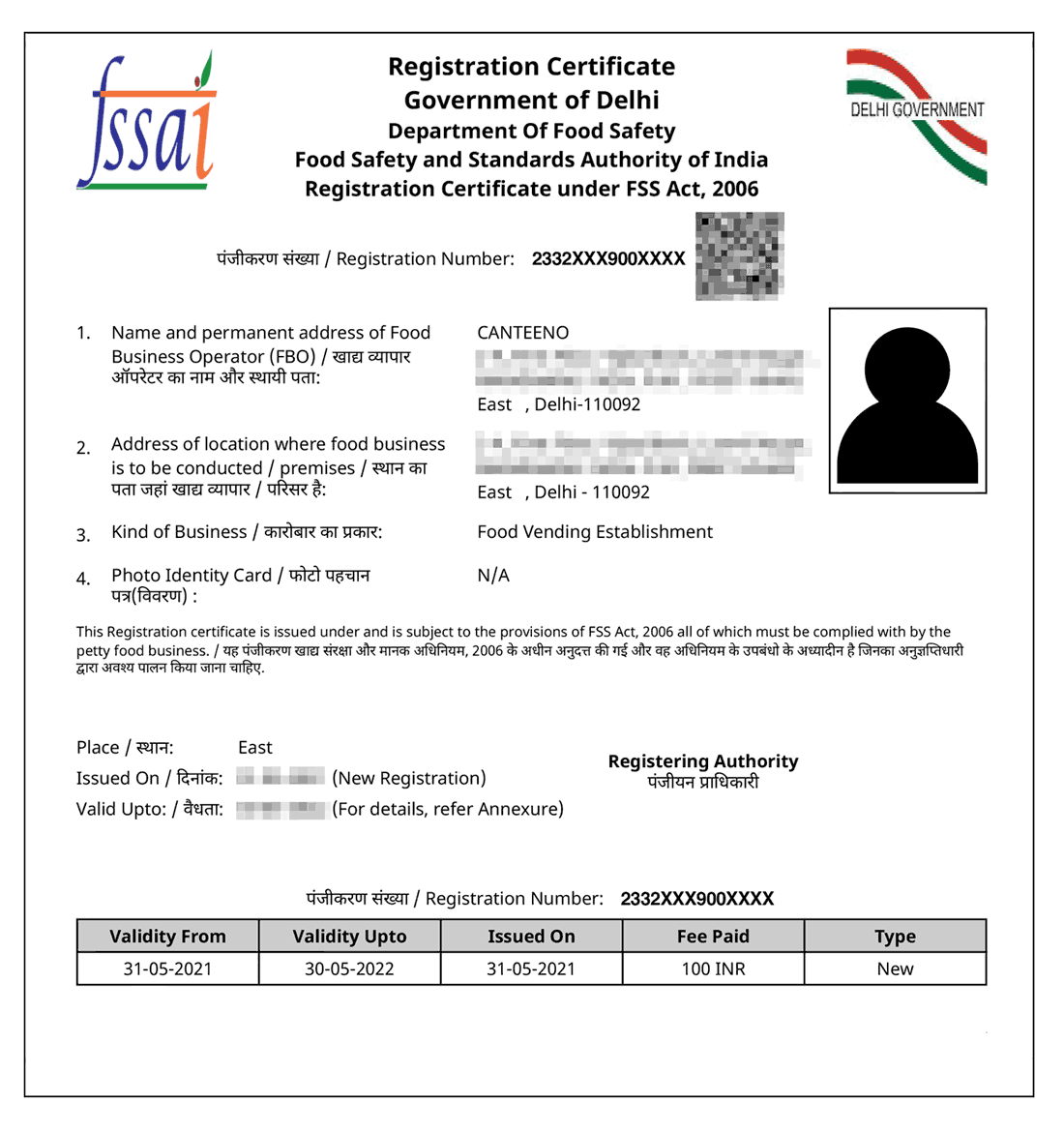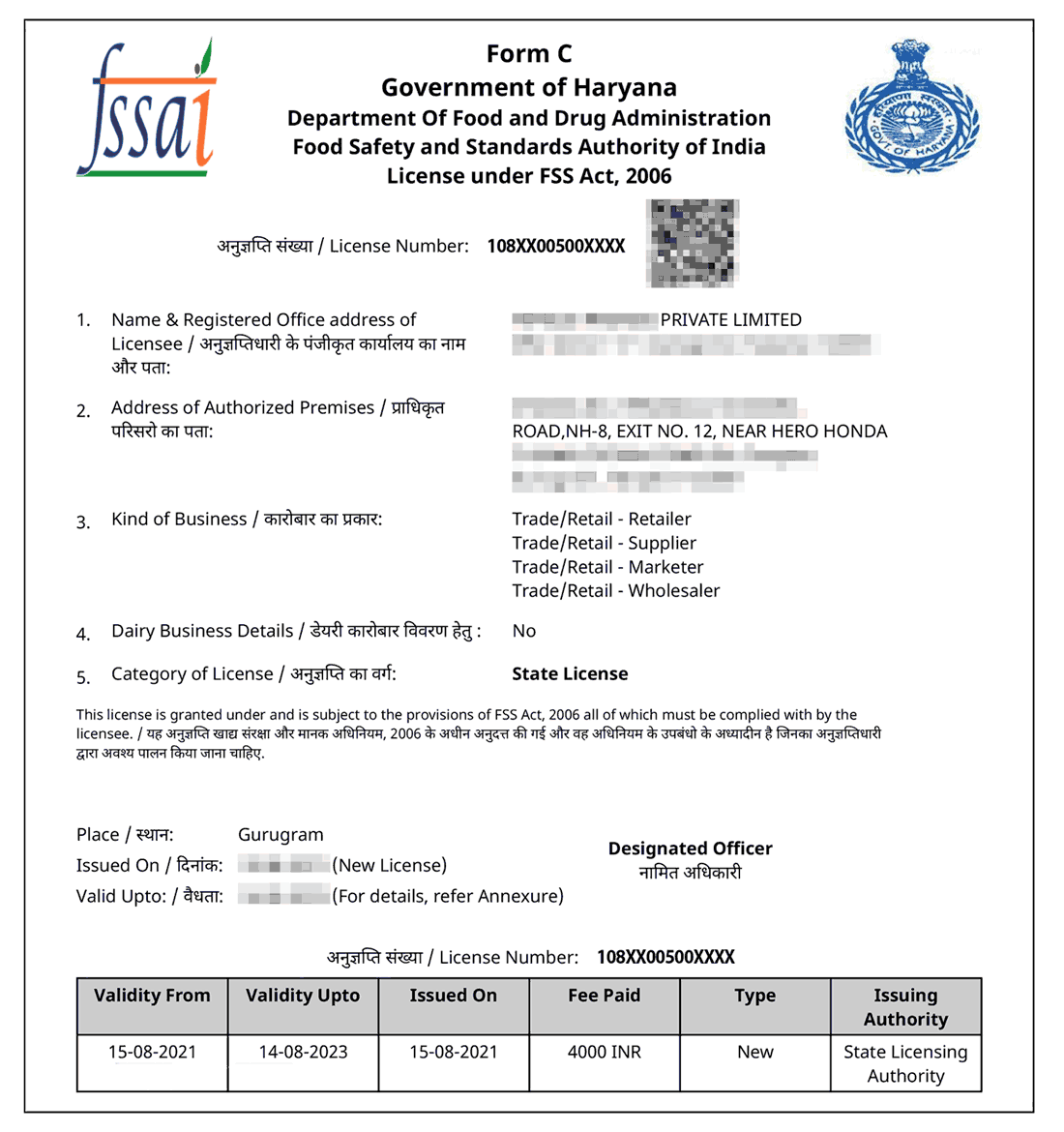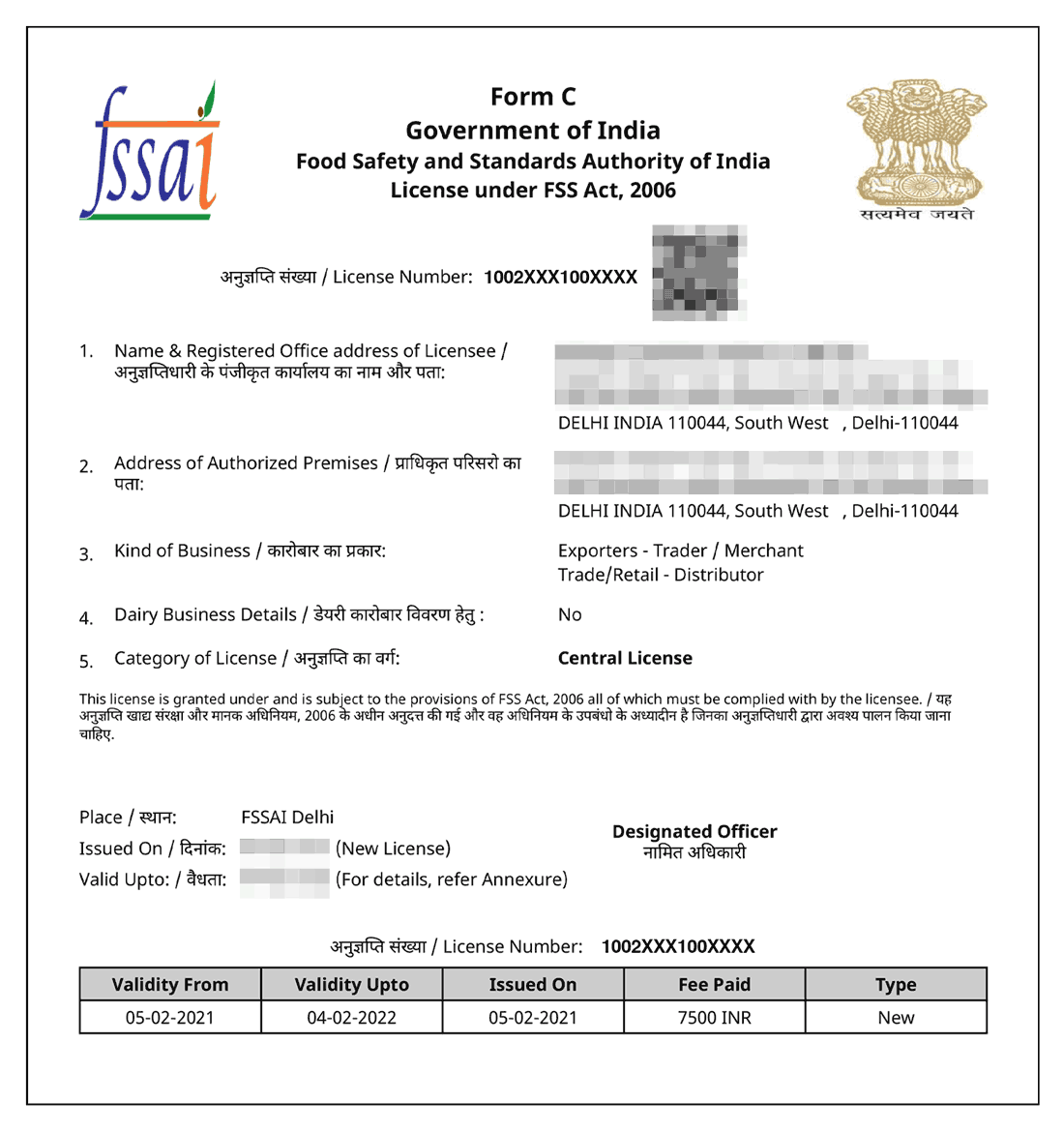
Updated on April 09, 2025 05:30:14 PM
An FSSAI license is a mandatory requirement for businesses dealing with essential food products in India, ensuring compliance with food safety and quality standards. Essential food products include staple items like grains, pulses, dairy, edible oils, vegetables, fruits, and packaged foods that are vital for daily consumption. These items play a crucial role in the food supply chain, making it essential for businesses such as manufacturers, distributors, traders, and retailers to obtain the appropriate FSSAI license to operate legally and responsibly.
The Food Safety and Standards Authority of India (FSSAI) regulates the production, processing, storage, distribution, and sale of essential food products to safeguard public health. Businesses must secure the appropriate FSSAI license depending on their annual turnover: Basic Registration for small-scale enterprises, State License for medium-sized businesses, and Central License for large-scale operations or businesses operating across multiple states.
Getting FSSAI approval not only ensures that food products meet safety standards, thereby strengthening consumer confidence, but it also builds brand and market confidence. It ensures that the essential food products consumed by consumers are safe, clean, and unadulterated. Getting this license is a step towards transparency and accountability in the food industry.
FSSAI License for Essential Food Products [Sample]



Table of Content
FSSAI Essential Food Products License is a certificate issued by the Food Safety and Standards Authority of India (FSSAI) to companies involved in the production, export, and sale of essential food products that are consumed daily. Essential food products include wheat, cereals, grains, dairy products, cooking oil, fruits, vegetables, packaged food items, and other essential food products for food processing.
This license ensures that businesses comply with the food safety standards set out in the Food Safety and Standards Act, of 2006. Whether you are a small retailer, wholesaler, or large manufacturer, obtaining the appropriate FSSAI license—Basic, State, or Central—is essential for your legal operations.
The purpose of FSSAI licenses is to ensure the quality, safety, and hygiene of essential food products available in the market. It gives customers confidence that the food they eat meets national safety standards and is free from contamination or spoilage. In addition, it improves business integrity, customer confidence, and competitiveness, and helps companies avoid legal sanctions and create a healthy environment.
These benefits not only ensure smooth operations but also build a solid foundation for your Essential Food Products's long-term success:
Here is a table summarizing the documents required for FSSAI License for Essential Food Products based on the type of license (Basic, State, and Central):
| Document | Basic Registration | State License (Medium Business) | Central License (Large Business) |
|---|---|---|---|
| 1. Application Form | Duly filled and signed application form | Duly filled and signed application form | Duly filled and signed application form |
| 2. Identity Proof | Identity proof of the applicant (Aadhaar/PAN/Voter ID) | Identity proof of the applicant (Aadhaar/PAN/Voter ID) | Identity proof of the applicant (Aadhaar/PAN/Voter ID) |
| 3. Address Proof | Address proof of the applicant (Utility Bill/Property Tax) | Address proof of the applicant (Utility Bill/Property Tax) | Address proof of the applicant (Utility Bill/Property Tax) |
| 4. Proof of Business Premises | Ownership or rent agreement of the business premises | Ownership or rent agreement of the business premises | Ownership or rent agreement of the business premises |
| 5. PAN Card | PAN card of the applicant | PAN card of the applicant | PAN card of the applicant |
| 6.Food Safety Management System (FSMS) | Not mandatory for small businesses | Mandatory for medium-sized businesses | Mandatory for large-scale businesses |
| 7. Partnership Deed or Articles of Association (AoA) | Required for partnerships or companies | Required for partnerships or companies | Required for partnerships or companies |
| 8. NOC from Local Authorities (Municipality) | Not required for basic registration | Required from local authorities | Required from local authorities |
| 9. FSSAI Compliance Declaration | Self-declaration to comply with FSSAI standards | Self-declaration to comply with FSSAI standards | Self-declaration to comply with FSSAI standards |
| 10. Food Products List | List of food products to be sold | List of food products to be sold | List of food products to be sold |
| 11. Manufacturing or Packing Details | Not applicable | If applicable, details of manufacturing or packing units | If applicable, details of manufacturing or packing units |
| 12. Hygiene and Safety Measures | Basic hygiene practices | Detailed hygiene and safety practices | Detailed hygiene and safety practices |
| 13. Proof of Income/Tax Returns | Not Required | Required for businesses with annual turnover above ₹12 Lakhs | Required for businesses with annual turnover above ₹20 Crores |
| 14. Lab Testing Report | Not Required | For some products, laboratory reports may be required | For some products, laboratory reports may be required |
| 15. Certificate of Origin (if applicable) | Not required | Required for imported products | Required for imported products |
FSSAI Registration Application Process for Essential Food Products:
The first thing that the applicant needs to do is to access the official website of FoSCOS, the Food Safety Compliance System.
Before applying, it is very important to decide whether a Central or State License is to be obtained. Each location should be separately entered to decide on its eligibility.
Once the website is loaded, click "Sign-up" for the desired license type. Fill in the registration form with contact details, whereby the phone number and email address provided will be active and accessible.
Choose a unique username and set up a password during registration. Upon completion of the form, click 'Register' to finalize the sign-up.
Confirmation of account activation via an SMS and email to the applicant after successful registration.
Use your new credentials to log into the system and fill out the FSSAI Registration online Application Form. All details should be correct and complete.
Before submitting online, print a copy of it. Once submitted online, a reference number would appear on the screen, very important for tracking the application process.
Within 15 days of submitting the application online, a photocopy of the filled application form should be sent to the respective regional or state FSSAI office. This is so that the application is considered and processed.
If you're planning to start an Essential Food Products in India, getting an FSSAI license is essential. The FSSAI License Fees for Essential Food Products include a government fee of ₹100 for Basic Registration, ₹ 2,000 to₹ 5,000 for State License, and ₹7,500 for Central License. Additionally, professional fees for application processing and documentation are ₹2,000 for Basic Registration, ₹3,500 for State License, and ₹5,000 for Central License.
| License Type | Goverment Fee(INR) | Professional Fee(INR) |
|---|---|---|
| Basic Registration | ₹100 | ₹2,000 |
| State License | ₹3,500 | ₹5,000 |
| Central License | ₹7,500 | ₹5,000 |
Note: The aforementioned fees are exclusive of GST
Conclusion
Obtaining FSSAI approval for essential food products is a critical step in ensuring food safety, regulatory compliance, and consumer confidence. Whether you are running a small business with an annual turnover of up to Rs 12 lakh or a large business with an annual turnover of over Rs 20 crore, FSSAI certification helps ensure integrity and ensures that your food products meet applicable safety standards. Food Safety Management and Standards of India.
At Professional Utilities, we leverage our industry knowledge and expertise to help businesses navigate complex regulations, minimize risks, and optimize operations for maximum efficiency and profitability.






This is a certification required to ensure that businesses involved in the production and sale of food products meet safety standards.
This ensures food safety, increases consumer confidence, and helps businesses comply with food laws.
Businesses involved in the production, packaging, storage, or sale of basic food products.
Common documents include: an application form, personal certificate, address certificate, company registration, and product description.
Speak Directly to our Expert Today

Reliable

Affordable

Assured